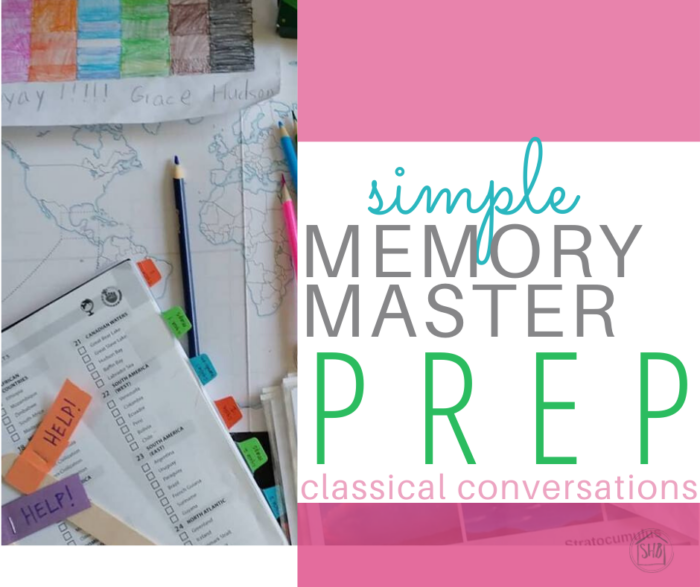
Each year we have prepared for Memory Master for Classical Conversations, I have thought about writing an article explaining our process (and my best tips). And each year (3 years) I have gotten behind and have not gotten around to it. Here we are in our 4th year of Classical Conversations and I am finally telling you my simple memory master prep thoughts and suggestions.
A word about Memory Master. This term is extremely foreign to non-CC families. When one announces proudly that Junior has achieved this accolade, the vacant smiles appear and the “Con…gratulations!?! What’s that?” start. Most people don’t understand what a HUGE deal this is.
For those of you reading this, hoping to make a similar announcement, direct your unknowing family members here and I will give a quick run-down.
A Memory Master
In order to become a Memory Master the student (or parent) has to memorize information in seven different subjects (Math, English Grammar, Latin, History, Timeline, Geography, and Science). The information can be in the form of a list, a sentence, a song, or an identification. The student is tested or “proofed” in each subject, testing their memory of 24 different facts in each of the seven subjects. Thus, a Memory Master is demonstrating mastery of 168 different facts, lists, or statements. Yep, it is a big accomplishment!
The student is “proofed” by his parent (at home), by another adult (at home), then by his tutor (in community), and finally checked by his Community Director. The proofing process has changed a bit over the last couple of years, but the parent proof is the opportunity for the parent to check the student’s mastery of the subject with a few helps along the way. Once the student reaches the tutor proof, he must be able to recite all the memory work with the appropriate prompts without any helps. The Director proof is more of a celebration of the student’s knowledge, where the director only queries the student on 25% of the material.
The current Memory Master guidelines do not specify the timing of these proofs. Each memory master candidate would need to discuss the timing of her proofs. In years past, there was the suggestion that each proof should take place a few days apart, but that is not detailed in the current guidelines.
When to Start Memory Master Prep
The simple answer to when a student should start memory master prep is: the first week of the year! Casual review of the memory work during your homeschool day or as part of a memory work routine is usually enough to start on your way to memory master. I have a simple Memory Work Review Routine here.
BUT… some kids are not even aware of what memory master is until directors start talking about it in the spring semester. We were in this camp our first year of Classical Conversations. Our director started talking about it during our morning community meetings and my daughter’s ears perked up. When she mentioned there was a t-shirt involved – my daughter made the decision right then and there: she was going to be a memory master.
Never-mind that she was 5. Never-mind I had no idea what we were in for. All the dissuading I tried, failed. She was determined. We started our memory master prep that first year about a month before the end of the year. I wish I could have gotten those 3 weeks (of my failed urging to wait another year) back. They would have been helpful in the process.
So, when should your potential memory master start her prep? I honestly don’t know because I don’t know where she is starting (knowledge-wise) and how motivated she is. But I have a tool that will help you figure it out.
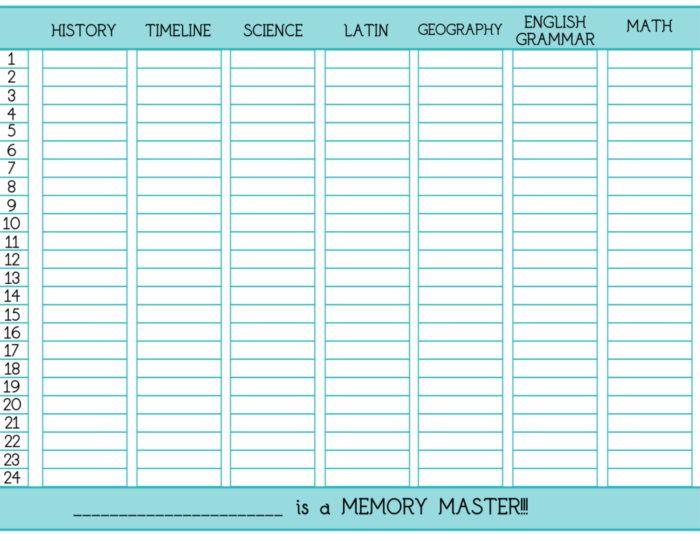
Use this Memory Master Tracker over the next week to figure out if the road is going to be too rough this year or if your student is truly ready. Pick a subject a day and casually work through the entire 24 weeks of memory work, asking and answering questions. Check off the boxes that are solid-gold memory pieces for your student – no mistakes, no bobbles, no helps. At the end of the week, you will have a good idea of just how much work you will have ahead of you if you want to become memory master.
The Nuts and Bolts of Memory Master
Some simple things I did not know when I started preparing my student for memory master proofing the first time which I believe to be crucial:
- History Sentences and Timeline must be word perfect. On the other hand, science lists are not required to be spoken “in order.” As long as all the information is there, the science is not a word perfect proof.
- Science must be answered in a complete sentence. Thus, if the question is: What are some U.S. space missions? The answer would have to start with: “Some U.S. space missions are…”
- Geography is not just the lists of locations. The student must be able to point to the place on a black-line map or name the locations indicated by the proofer. The locations are not proofed in order of their appearance in the lists.
- Skip-counting is only allowed for students under the age of 10. If the student is over 10 years old, he must be able to answer the multiplication facts from randomly ordered flash cards (Here are some to help you review). He must state the entire multiplication fact (i.e. “Three times three is nine.”).
- All the prompts for the proofs are in the “Show me…” or Tell me…” format. It is helpful to prepare the student for this format.
Simple Memory Master Prep
I know you have been waiting for the revelation of my highly experienced wisdom regarding preparing for memory master. Here it is!
Every day diligence.
So profound, I know!
1. Commitment
Seriously, I believe each parent should sit down with her student(s) and have a frank discussion about the hard work necessary to become a Memory Master. It really is a hard task! And there are times when both of you will want to give up. Start with a commitment to one another to help one another along the way, even when it is hard.
During this conversation, you can figure out how you are going to accomplish this task together. You can follow the one to two subject a day (plus the hard one) schedule I have here. It is based on working on individual subjects each day and working on the hard stuff every day. Our hard subject is Geography, but your’s may be another subject. Identify the hard and zero in on it for practice every day. Also, set a time limit to your memory master prep. Thirty minutes a day is probably a good maximum.
2. Confidence
Once you have committed to the process, start with WINS. Quick, easy wins are the best confidence builder there is. Above, I shared the Memory Master Tracker I created. I sat down with my memory master candidate last night and started the one week evaluation. She has not made her final decision if she is going to try for memory master, but she is leaning toward doing it. We started with Timeline as a fun, easy way to make sure she is confident going in to the preparation process.
Allowing your student to identify the easy parts is also a confidence builder. They can start to recognize their strengths. And you can start to see where some more helps are necessary.
3. Review Strategies
Using the games, songs, chants, etc. your tutor demonstrated at community day is always helpful! For more ideas on a particular subject, check out CC Connected. I find it more helpful if I am looking for a specific resource for a specific week. Drilling down to what I need prevents hours of searching in the abyss of parent-shared resources.
I also have some resources in my Shop under the heading Classical Homeschooling.
I have started writing enough about Classical Conversations that I created a segment of my mailing list devoted to CC. If you are interested in receiving updates on our CC journey, encouragement for your CC journey, and notification of new resources to help you, please sign up here. If you are already a subscriber, it will NOT double-subscribe you.
Figure out what works for your student and pour as many of those type of resources into their brains. But, don’t try to teach the same information three different ways. I have found having two or three different songs or chants for one memory peg a bit too overwhelming. If you liked what your tutor did, ask her to share a video of it with you. If you didn’t like it, look for something else that will work for your student.
One last word about reviewing with your student: remember the stick in sand approach. Keeping the memory work review super-simple helps kids to focus on the material, not the tune of the song or “winning the game.” We do the majority of our work orally. Again, this is what works for my student; so it may not work for you. The old adage of keep it simple works here.
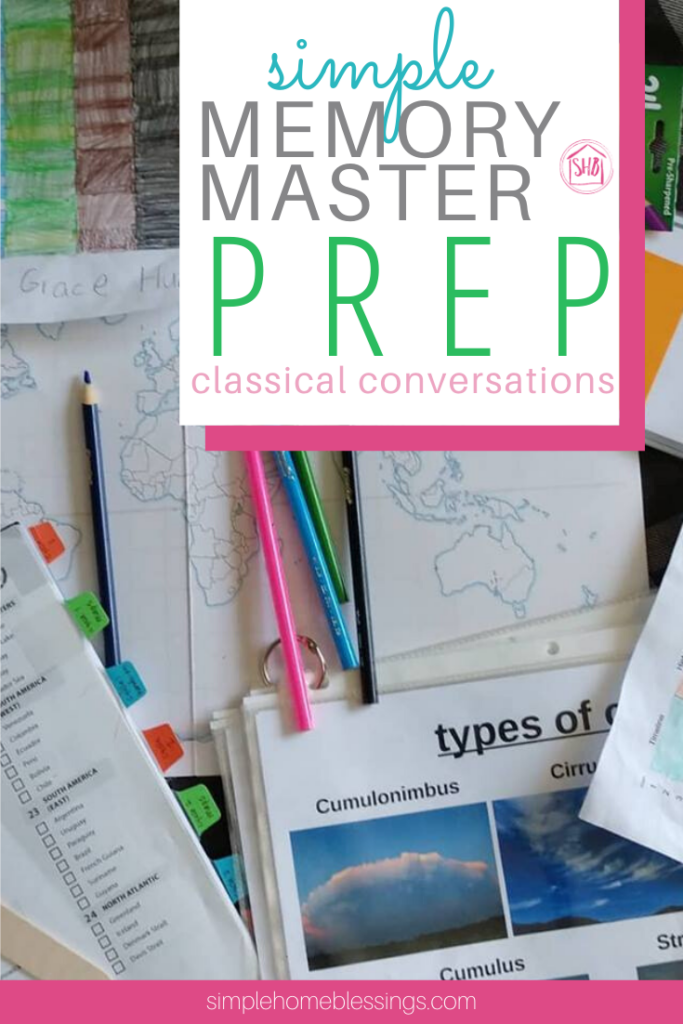




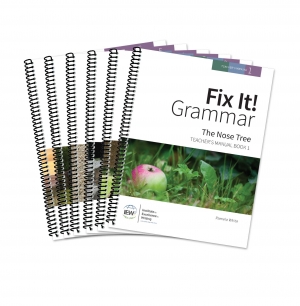


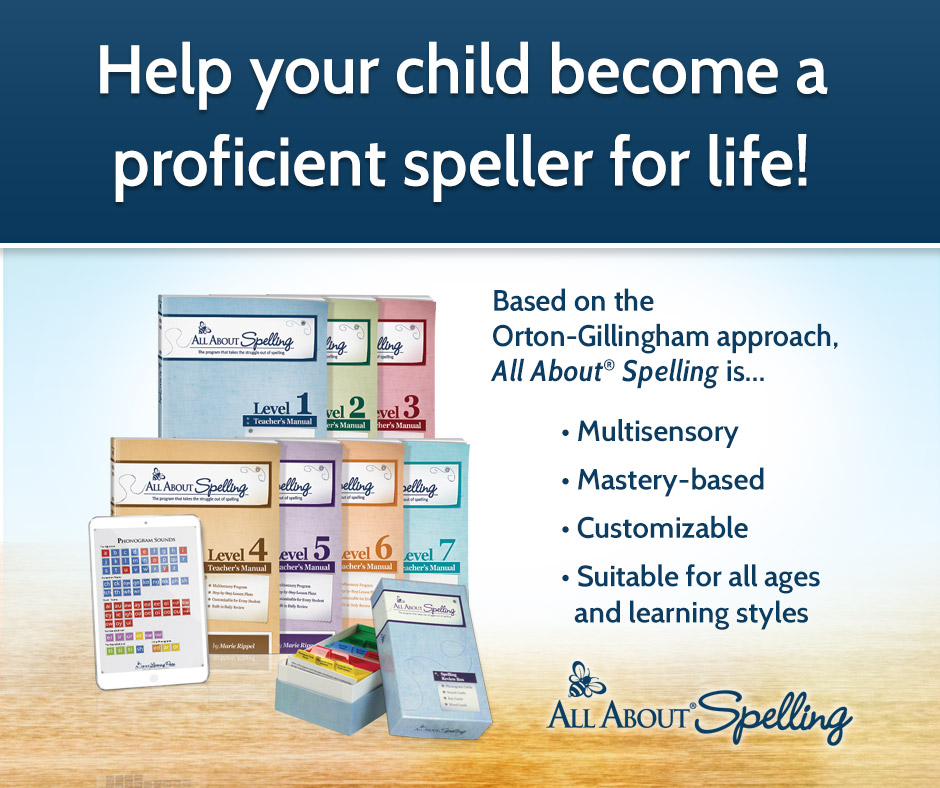

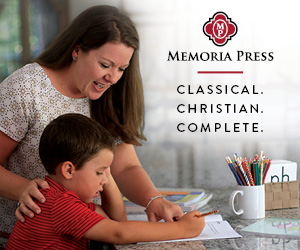




This Post Has 2 Comments
The link to Memory Master guidelines is no longer good. Do you have a new link?
There are new guides each year. I haven’t seen a new link yet this year.